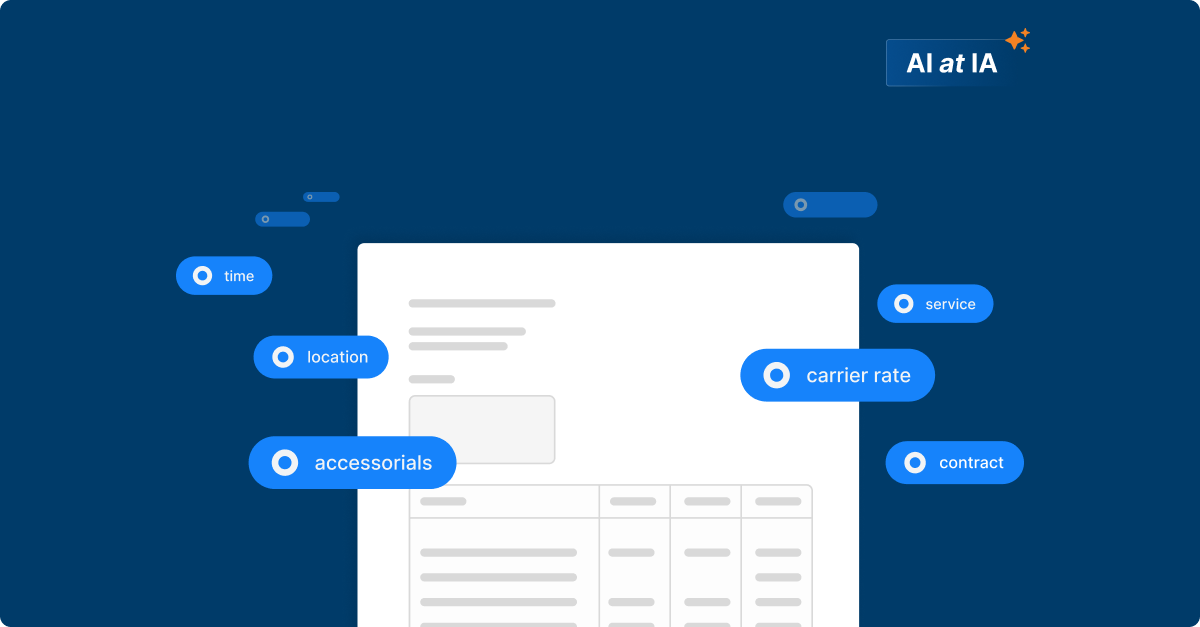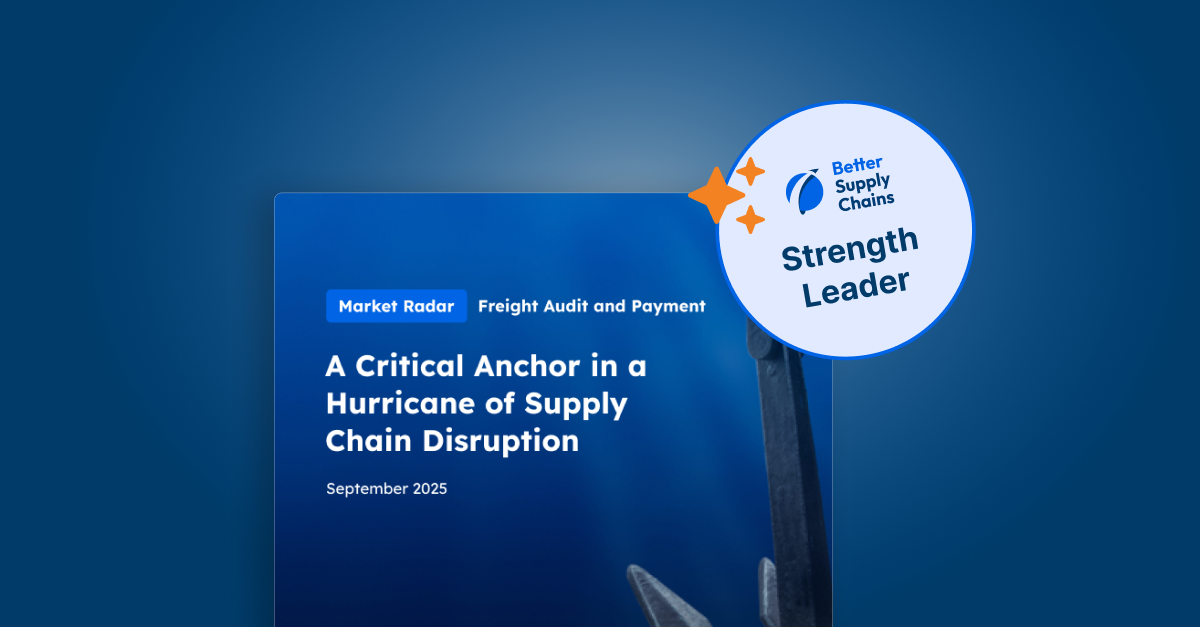With Cargo Theft on the Rise, Shippers Turn to Smart Auditing

Imagine this: cargo worth six figures prepared for transport, then, in a blink, it's snatched by thieves and vanishes. This vision may seem like a scene from a Bond movie. Yet, it's a reality shippers increasingly face, bearing annual losses of an astounding $15-$30 billion.
Amid this escalating crisis, companies urgently adopt robust countermeasures. Smart auditing offers hope, countering the complexity and frequency of cargo thefts with advanced technology and innovative strategy to bolster supply chain security. This article explores this further.
Understanding the Scope of Cargo Theft
Cargo theft is pervasive, relentless, and disruptive. Let’s unpack how it affects all transportation modes and freight types, with consequences far surpassing the immediate loss of goods.
Defining Cargo Theft and Its Impact on Shippers
Cargo theft inflicts a multi-billion dollar dent on the U.S. economy. Nothing is immune from the clutches of these criminals, from goods to chattels, money, or baggage. The fallout from these incidents carries significant implications for shippers. Victims of cargo theft not only suffer financial setbacks but also risk reputational damage. A theft stains the company's image, diluting consumer trust and shaking confidence in its security measures.
Statistics and Trends: The Prevalence of Cargo Theft Incidents
The escalating trend of cargo thefts presents a stark reality. CNBC reported a startling surge in such incidents in March 2023, with a particular focus on food and beverage items. These sectors experienced a 50% spike by February, leading to an average loss of $214,000 per theft. More recent 2023 data shows a worrying rise in cargo thefts and related fraud, with an increase of 41% in just the first 20 weeks of the year. CargoNet's 2022 analysis also showed a growing trend in large vehicle and cargo thefts, burdening the U.S. and Canada with a staggering $223 million loss — a 15% year-over-year increase.
As Cargo Theft Increases, Shippers Demand a Solution
With rising cargo theft, shippers gravitate towards smart auditing — a forward-thinking strategy harnessing advanced technology and analytics. Here's why it's beneficial:
The Proactive Approach of Smart Auditing
Introducing smart auditing: a proactive approach that stands as a bulwark against escalating cargo theft risks. This concept empowers businesses to construct comprehensive risk management strategies, leaning on data analysis. By meticulously analyzing cargo movements, shipping routes, and past theft incidents, companies can evaluate threat levels specific to each location, identify unique risk factors, and preemptively enhance security measures to optimize shipping routes.
The Power of Advanced Technology and Data Analytics
Smart auditing swiftly detects irregularities and potential theft indicators using AI, machine learning, advanced technology, and logistics data analytics. Utilizing AI and machine learning, auditors discern patterns in real-time financial data, spotlighting unusual activities or theft red flags. For example, an unexpected surge in shipments to a specific location undergoes scrutiny. Is it a genuine business move or a theft signal? Such technology-empowered analysis can help answer this.
Smart Auditing Provides Tech-Enabled Security to Worried Shippers
Let's explore how smart auditing combats cargo theft with real-time monitoring, predictive analytics, and claims management.
Real-time Monitoring and Visibility
Real-time monitoring is instrumental in the fight against cargo theft, delivering swift responses to incidents. With smart auditing, companies distinguish recurring theft patterns, single out high-risk areas, and adopt proactive risk management. Given that 91% of e-commerce customers routinely track their packages, it's clear that real-time monitoring plays an undeniably significant role in modern logistics.
Pattern Recognition and Predictive Analytics
Smart auditing systems lean heavily on machine learning for pattern recognition and predictive analytics, skillfully sifting through extensive data. These systems spot hidden patterns, unraveling potential anomalies indicative of theft. Coupled with human discernment, this allows auditors to focus on high-risk areas, enhancing overall efficiency. In parallel, security assessments by these systems expose vulnerabilities in IT infrastructure, facilitating timely resolution. With routine audits, they ensure that shippers constantly identify and manage new risks, underscoring their proactive stance in freight audit and cargo safety.
Integration with Claims Management
For every 100 parcels shipped, 1 to 1.5 are lost or damaged. Integrated claims management swiftly addresses this issue, expediting resolutions while conserving time and resources. By offering real-time insights, it enhances recovery rates, optimizes processes, and mitigates future risks, ultimately uplifting customer satisfaction and improving shippers' financial health.
The Future of Smart Auditing and Cargo Security
In response to the evolving global shipping industry and persistent cargo theft, a new era of freight auditing is emerging, bringing transformative technologies to the forefront. Let's explore some.
Emerging Technologies Redefining Smart Auditing
Several emerging technologies are poised to redefine smart auditing while boosting efficiency and cargo safety:
- AI and Automation: By managing increasing data volumes, these technologies streamline auditing processes and bolster cargo security through early threat detection.
- Blockchain Technology: By ensuring secure, transparent data storage and exchange, blockchain amplifies audit reliability and fosters trustworthy information exchange for cargo security.
- Big Data Analytics: Freight audit service providers leverage analytics to dissect large datasets, proactively detecting risks and helping preempt threats to cargo security.
- Cloud-Based Audit Tools: Through enhancing collaboration and access to advanced analytics, these tools also ensure cargo security by protecting sensitive auditing data on secure cloud platforms.
- Adapting Business Models: As freight audit companies develop new skills linked to emerging tech, they stay ahead of potential cargo security threats, adopting innovative audit methodologies.
A Deeper Dive into AI and Blockchain’s Ability to Enhance Cargo Security
The transformative potential of AI and blockchain for cargo security is undeniable. According to a Verta, Inc. survey, 63% of companies are increasing AI investment, harnessing its ability for swift risk identification. Concurrently, 39% of global executives leverage blockchain's tamper-proof records for unflinching supply chain accountability. Alongside IoT's remote cargo monitoring, these technologies promise an efficient, secure future in freight auditing.
Curbing Cargo Thefts: Intelligent Audit Paves the Way
The time is now for shippers to adopt effective solutions as cargo theft escalates in frequency and scale. Smart auditing emerges as a leading response, employing cutting-edge technology and data analytics to identify and mitigate vulnerabilities in real-time proactively.
One of the top freight audit companies in this field, Intelligent Audit provides robust, technology-driven solutions to tackle cargo theft. By leveraging an approach heavy with AI, machine learning, and freight audit software, customers can manage current threats and foresee and prepare for emerging ones.
The rise in cargo theft is alarming, but entities like Intelligent Audit stand ready to combat this issue. Get started with Intelligent Audit today and see for yourself.



